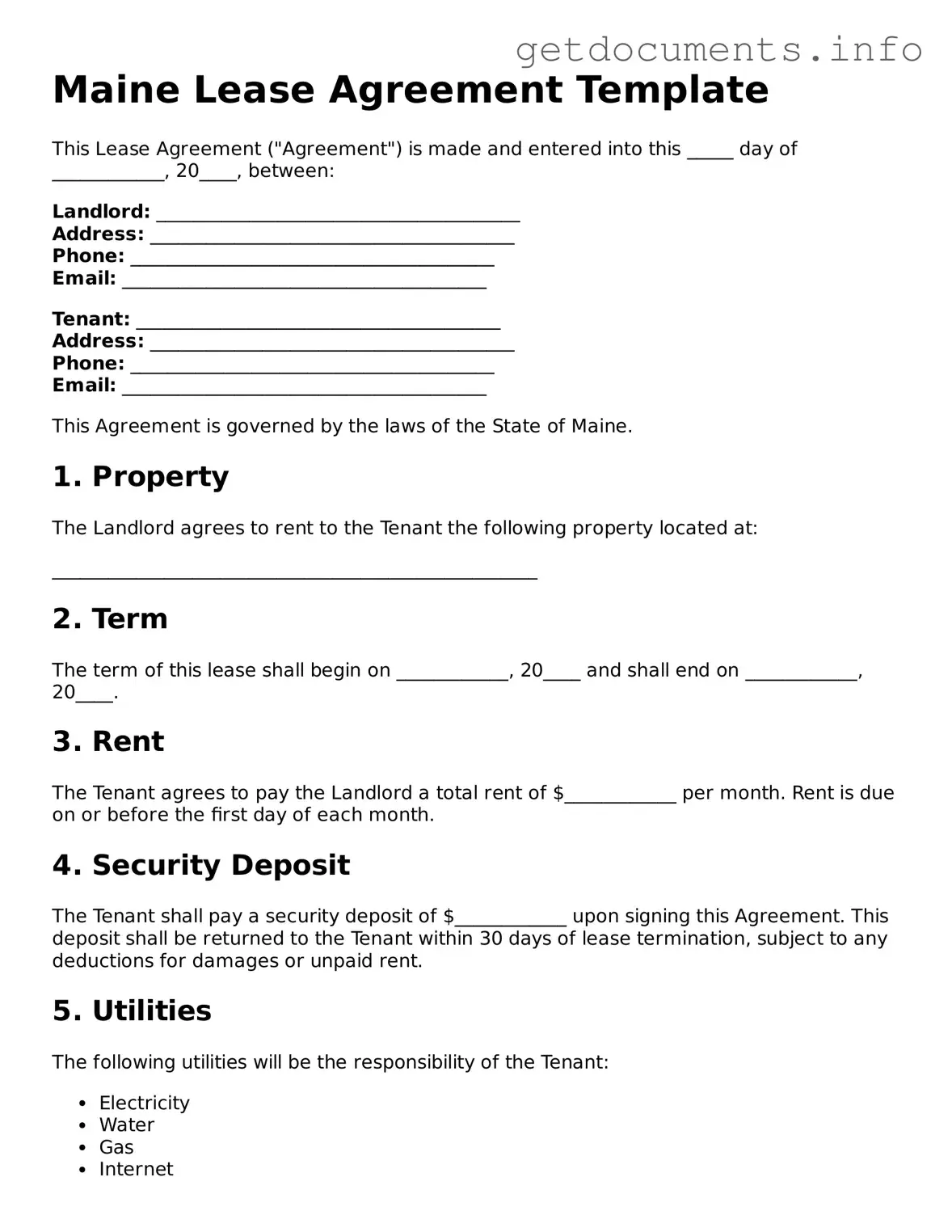Free Lease Agreement Template for Maine
The Maine Lease Agreement form is a legal document that outlines the terms and conditions between a landlord and a tenant for renting residential property in Maine. This form serves as a crucial framework, detailing responsibilities, rental payments, and other essential aspects of the tenancy. To ensure a smooth rental experience, it's important to fill out the form accurately; you can get started by clicking the button below.
Access Lease Agreement Editor

Free Lease Agreement Template for Maine
Access Lease Agreement Editor
Got places to be? Complete the form fast
Fill out Lease Agreement online and avoid printing or scanning.
Access Lease Agreement Editor
or
⇩ PDF File
